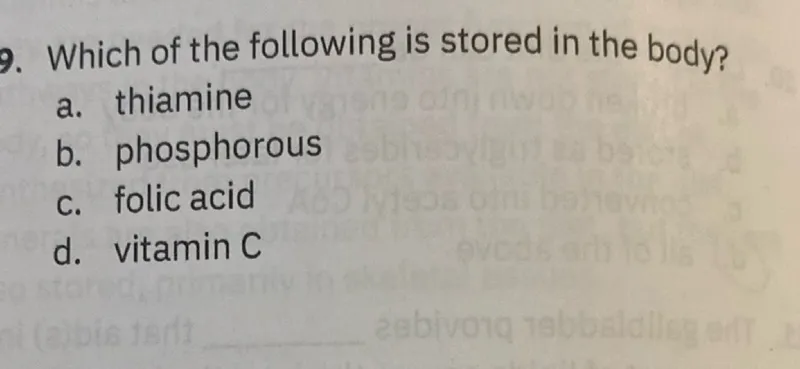The answer is b: phosphorous.
Explanation for each option:
a. Thiamine: Thiamine, also known as vitamin B1, is a water-soluble vitamin that is not stored in the body in significant amounts. It needs to be consumed regularly through diet.
b. Phosphorous: Phosphorous is a mineral that is stored in the body, primarily in the bones and teeth. It plays a crucial role in bone health, energy production, and the formation of DNA and RNA.
c. Folic acid: Folic acid, or vitamin B9, is another water-soluble vitamin that is not stored in large amounts in the body. It is important for DNA synthesis and repair, and it must be consumed regularly through diet or supplements.
d. Vitamin C: Vitamin C is a water-soluble vitamin that is not stored in the body. It is important for the immune system, collagen synthesis, and as an antioxidant, and it needs to be consumed regularly.
In summary, phosphorous is the correct answer as it is stored in the body, mainly in the bones and teeth.






